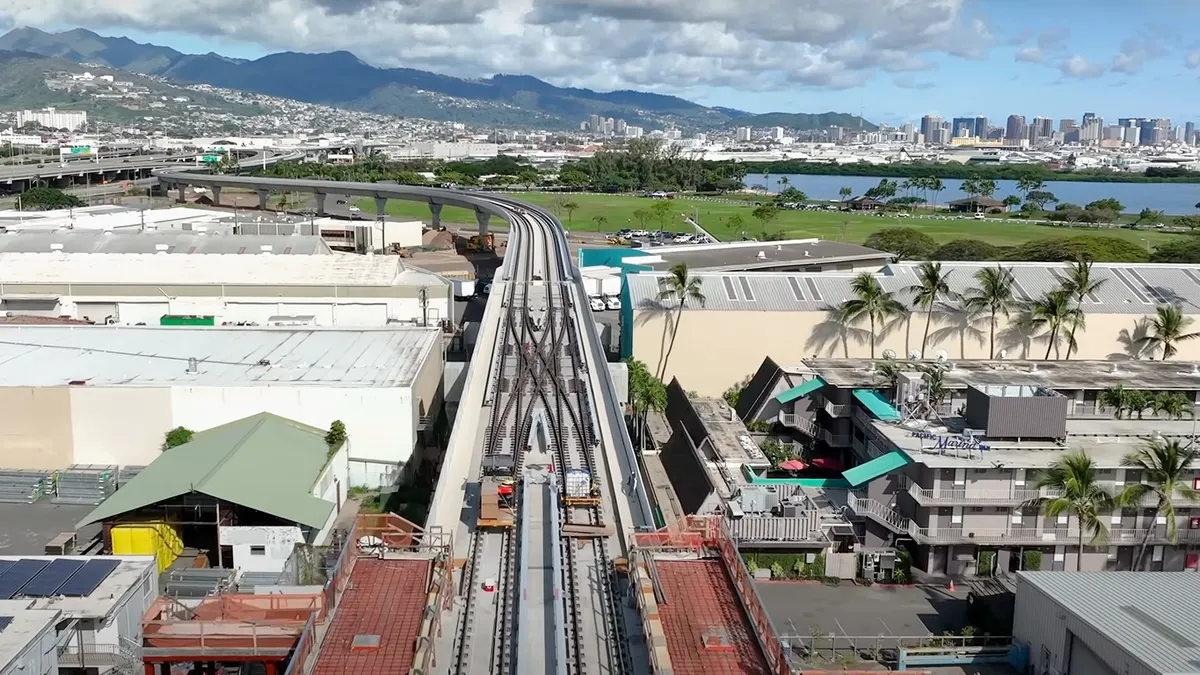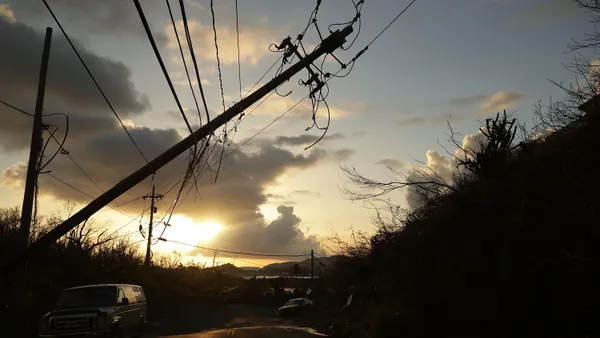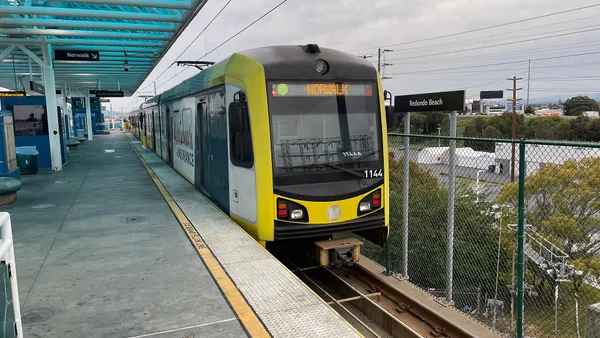Dive Brief:
- The contractors hired to build part of the Honolulu rail line are suing the Honolulu Authority for Rapid Transportation, alleging that HART failed to address problems with utility relocation, which caused expensive construction delays. The contractors said HART’s actions are a breach of contract, and they seek more than $99 million in damages.
- In 2016, the Shimmick/Traylor/Granite joint venture was awarded an $875 million contract to build four stations and 5.2 miles of elevated track from Aloha Stadium to Middle Street. STG alleged in the complaint that HART knew well in advance about issues related to utilities in the path of the project — known as the Airport Guideway and Stations project — and told bidders it was addressing the problems and would pay for any delays.
- STG claims that HART did not deal with the utility issues in a timely manner, nor pay for the contractors’ delays as promised, according to the complaint. HART said in an email to Construction Dive it has been negotiating with STG for more than two years in an effort to reach a fair settlement.
Dive Insight:
According to the complaint filed in the Hawaii state Circuit Court on July 6, the contractors were concerned about the risks posed by the utility lines when they submitted their bid, but HART assured the JV that it “had taken effective steps to ensure the utility line relocation work would not hinder or delay STG’s ability to timely construct the AGS guideway.”
HART also allegedly told the bidders the utility relocation designs were 90% complete, and that the contractor would be allowed more time to finish work if there were delays in getting utilities approved, per the complaint. However, the designs weren’t that far along, and HART took more than a year to provide data to finish them, according to the complaint.
When STG presented evidence of those problems and their impact on the construction schedule, HART took three years to negotiate and execute change orders to address the delays, according to the lawsuit. The contractors said they were forced to absorb the cost of utility-related delays, and have not been equitably compensated.
“We are disappointed that HART continues to neglect its obligations and to avoid taking responsibility for delays outside our control,” said a STG spokesperson in an email to Construction Dive. “We did not take this action lightly and would have preferred to have resolved this matter amicably with HART, and have endeavored many times to do so, without success.”
The agency said it respects the contractors and the work they performed, but disagrees with their characterization of the nature of the claims and the alleged damages suffered.
“HART Executive Director and CEO Lori Kahikina takes HART’s relationships and obligations very seriously, primarily its obligation to protect the taxpayer and to be prudent in the spending of taxpayer monies,” a HART spokesperson said. “While the issues described by STG arose prior to Kahikina’s administration, HART has been in active negotiations with STG about these claims for over two years in an effort to reach a fair settlement. HART continues to work with STG daily to complete the next segment of the project.”
Utility relocation issues
Such utility-related delays are not uncommon on infrastructure projects. The 16-mile Purple Line light rail project in Maryland has also recently encountered utility relocation issues, which are contributing to construction delays and augmenting costs.
Excavating for infrastructure improvements is disruptive and expensive, analysis from management consulting firm McKinsey found, though bundling projects in the same area that require digging can help streamline work.
Phase one of the Honolulu rail project opened at the end of June after years of delays and cost hikes. The airport segment under dispute is part of phase two, and is set to be complete in 2025.













